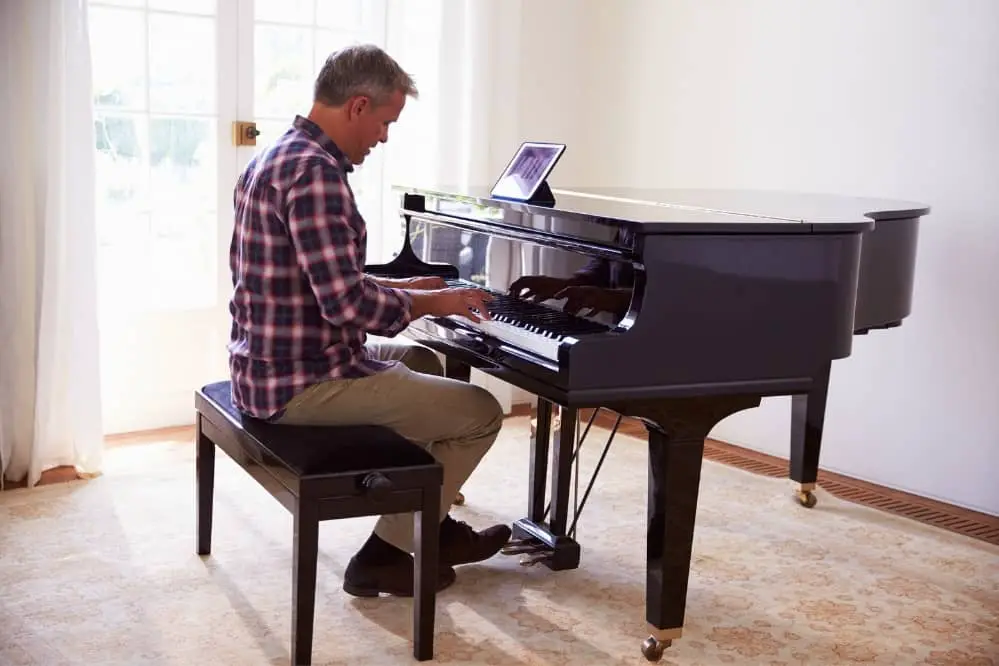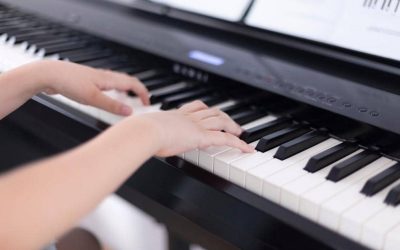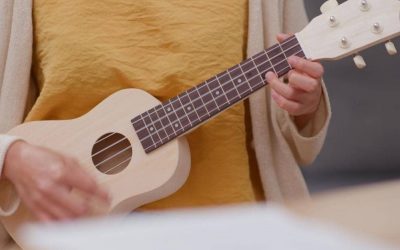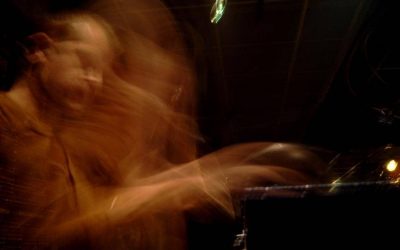Pianos can express so many moods and create melody across so many genres. But it’s such a complex instrument, no wonder many people ask themselves – is it hard to learn piano? At an older age, it can be a bit of a challenge.
But not ultimately as difficult as you may think. It’s really more about what you’re looking to get out of your experience. Do you want to become a concert pianist? Do you want to play the keyboard in a band? For various goals there are of course specific age groups when it’s best to start learning.
Learning Piano When You’re Young
If you start learning at an early age, there are definitely some great advantages. First of all, it’s unlikely that you have prior experience with any instrument. Therefore, you’re able to start with a clean slate and be molded by a great piano teacher.
Some say that the age of six is the perfect age to start learning, primarily, because you won’t have picked up any bad habits or have anything to compare the piano to.
Furthermore, young students have the advantage of a sharp memory and the ability to make connections a lot faster. It’s also no secret that we’re better at accumulating knowledge and new information when young as opposed to old.
Another advantage is having better reflexes, dexterity, and endurance. Make no mistake, playing the piano is sometimes as much a test of endurance as it is about technique and years of practice. At least when performing complex classical music pieces, that is.
Learning Piano When You’re Old
Let’s start with some disadvantages about learning the piano when you’re older. First of all, the hand dexterity will take longer to develop. Secondly, learning new things, such as music theory, won’t come as easy.
Just because you’re older and more experienced with things doesn’t mean that you’ll have better finger independence. Nor does it mean that experience playing another instrument will help you transition to a piano.
But, there can be some advantages too. Say you already know how to play an instrument. Or, you have some experience in making music. Then, having prior music theory knowledge will help you in other areas.
You won’t have to spend as much time reading books and manuals. Therefore, you can dedicate that time to practicing the piano. If you’re already able to read music, understand notations, key signatures, time signatures, and everything else, then it’s just a matter of putting in the practice time.
It’s also no secret that adults are a lot better at following instructions. Whereas kids might not always be focused enough to listen to teachers. So is it hard to learn piano at an older age? It can be, but only for some people.
Expectations
Unless you’re a prodigy, it’s important to manage your expectations. In terms of what you’d like to learn to play, set some short-term goals, and stick to them. Learn to overcome minor obstacles in your studying instead of shooting for the moon early on.
This will help you at any age, but even more so if you’re picking up piano for the first time as an older student. This type of gradual progression is great because it can prevent you from getting discouraged. Especially when you’re not studying alone and see others progressing at a faster pace.
But let’s talk more about expectations. What can you hope to achieve if you start to play the piano in your 30s or 40s? Can you expect to become a concert pianist? It’s very unlikely.
First of all, just because you can learn to play the piano in later stages doesn’t mean that you’ll become a fantastic player. It takes thousands of hours to master this instrument. Those that play professionally on the world’s largest stages practice every day and usually start very young.
That said, it doesn’t mean that you won’t be able to reach a point where you can join a band or play your favorite classical pieces. But there’s a big difference between doing that and landing a spot in an orchestra.
Will Teachers Take Older Students?
Here’s something you should understand. Although most piano teachers prefer younger students, your money is green too.
Those that make a living from teaching others how to play an instrument will take on as many students as they need, from a financial point of view. End of story.
Plus, one of the advantages of learning to play piano at an older age is that you may actually be able to afford taking piano lessons, instead of having to ask your family for the money.
A Challenge Worth Taking
The great thing about learning to play the piano is that you can do it anywhere. As long as you can afford a digital piano, you can take online lessons, practice in complete silence, practice on the road, and so on.
Just make sure that you’re doing it for the right reasons. If you set out your goals and reference them against the information in this article, you’ll be able to tell whether it’s something worth doing at this stage in your life.






